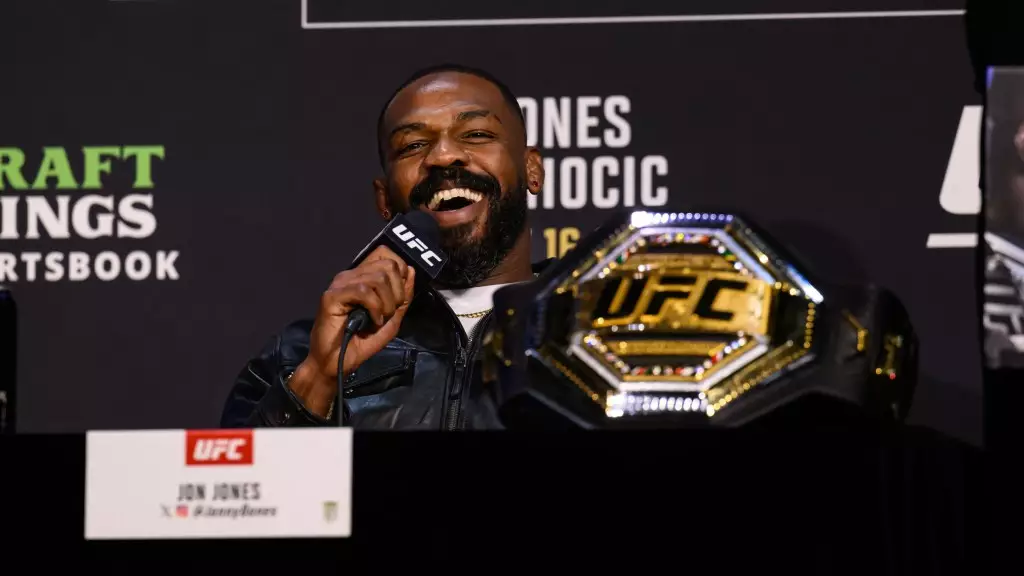Jon Jones, a figure both lauded and criticized in the realm of mixed martial arts, recently defended his UFC heavyweight title against Stipe Miocic at UFC 309, securing a victory through a third-round TKO. This impressive performance reinforced his dominance in the sport, highlighting his grappling prowess and striking versatility. The fight showcased Jones’s ability to execute a well-rounded strategy, defending against Miocic’s attempts and ultimately landing a remarkable spinning back kick that sealed the deal. Such victories keep him firmly in the spotlight, but they also spark discussions about his mindset and future.
Despite his recent triumph, not everyone is celebrating Jones’ approach to the sport. Former UFC champion Michael Bisping took to his podcast to criticize Jones for what he perceives as a lackluster mentality regarding potential matchups. Rather than embracing the toughest challenges presented by hungry contenders like Tom Aspinall, Jones has reportedly expressed a preference for fighting Alex Pereira, a choice Bisping sees as an evasion of tougher battles. The implication is that Jones may be strategically sidestepping more threatening adversaries, including young, ambitious fighters who could pose a genuine challenge.
Bisping’s critique extends beyond Jones to include a broader commentary on the current landscape of combat sports, notably when he draws parallels to social media star Jake Paul. Following Paul’s recent victory against a much older Mike Tyson, Bisping expressed disdain for what he views as an opportunistic approach to fighting. Just as he believes Jones is opting for safer fights, he similarly accuses Paul of seeking out competitors who pose minimal risk. This raises fundamental questions about the integrity of matchmaking in modern MMA and whether champions are fulfilling their roles as gladiators.
Bisping’s concerns resonate with many MMA fans who crave thrilling matchups that pit champions against the fiercest challengers. The potential clash between Jones and Aspinall has become a focal point of these conversations. As someone who watched Jones perform exceptionally in his last fight, Bisping acknowledges the champion’s formidable skills, yet he asserts that the community deserves to see Jones tested against the best. Indeed, the speculation surrounding a matchup with Aspinall adds an element of excitement, and many believe that this fight could provide a clearer insight into Jones’s standing as a true champion.
In the end, the path that Jon Jones chooses moving forward will significantly impact his legacy. While his talent is undeniable and his recent performances suggest he remains a formidable opponent, the manner in which he approaches future fights will determine whether he is seen merely as a skilled fighter or as a genuine champion who faces all challengers head-on. Jones has the opportunity to make lasting contributions to his legacy, but that will require him to remain engaged with the broader competitive landscape of the UFC, taking on challenges that excite fans and honor the sport’s competitive spirit. As Bisping aptly noted, the questions about courage, integrity, and responsibility in MMA loom large on the horizon.

